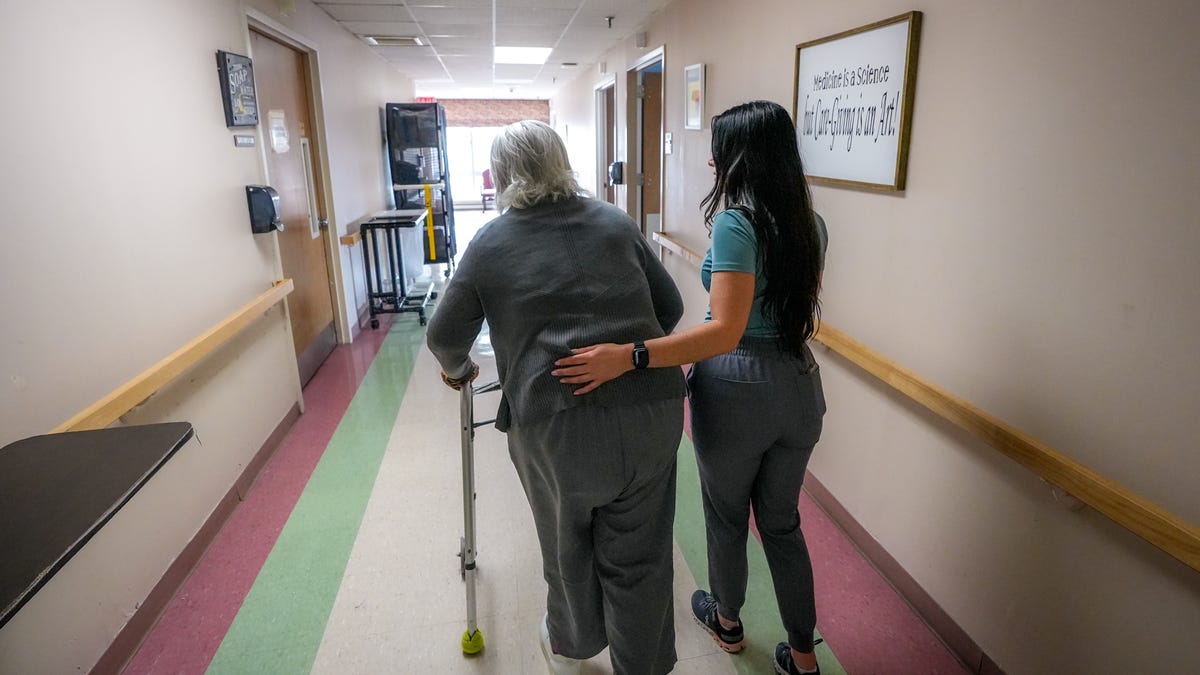Rhode Island
Rhode Island FC topped at home; here’s how it happened

SMITHFIELD — It took four games, and came in a losing effort, but Rhode Island FC finally scored its first goal at home by a player donning amber and blue colors.
In the club’s season opener, it was a New Mexico United own goal that gave RIFC its first score. Since that March 16 contest, Rhode Island had been shutout in back-to-back games at Beirne Stadium at Bryant University.
Clay Holstad’s right-footed blast on an indirect free kick in the box from Noah Fuson found the top right slot for club history in front of 4,000 on Friday night. RIFC managed the score in the 89th minute but was unable to equalize Phoenix Rising FC and fell 3-1.
Rhode Island (1-2-4) snagged its first win in program history last week, a 2-1 decision against Las Vegas Lights FC, but lost for the first time at home this season after three consecutive draws.
Phoenix opened the scoring just six minutes into the match when Rémi Cabral deposited a shot bottom right from Emil Cuello off a cross into the box. Rhode Island tweaked its defensive look after the goal to pressure Rising, the league’s defending champion, higher. It worked, but Phoenix landed its second goal shortly after as Cabral found space at the top of the box in the 34th minute.
“Unfortunately, right as it happened, we gave up the second goal,” RIFC coach Khano Smith said of the defensive change. “But then from there on, up until right when we scored, I thought we started to make an impression on the game.”
RIFC owned possession in the second half and held a 54.1% edge for the game. The chances were there as Albert Dikwa’s penalty kick, awarded on hand ball in the box by Phoenix, in the 41st minute was denied. And Mark Doyle’s header from Holstad in the 79th minute went over the bar.
Phoenix was limited to just four shots on target and RIFC had a 9-1 advantage in corner kicks, but the club was unable to manufacture goals again in the attacking third.
“We definitely, I think we had enough opportunities,” Smith said. “Credit to them, they went up two and then they didn’t need to score again. Just like us last week in Las Vegas, we scored two in the first half and we didn’t really need to push the game.”
Had Dikwa converted the penalty kick, Holstad’s goal would have been the equalizer as RIFC tried to salvage a draw. But the striker was denied on the attempt to the keeper’s right for his second consecutive failed penalty kick this season.
Phoenix capped the scoring on the counterattack in the 90th minute when Federico Varela used one touch to find the short post off a cross.
“When a team is compacted, they don’t have to come out,” Smith said. “We have to be the aggressor and create opportunities and score them. It felt like we were missing a little bit of that.”
jrousseau@providencejournal.com
On X: @ByJacobRousseau

Rhode Island
Rhode Island House passes reforms to Law Enforcement Bill of Rights | ABC6

PROVIDENCE, R.I. (WLNE) — The Rhode Island House of Representatives passed the Law Enforcement Officers’ Due Process, Accountability and Transparency Act, a reform to the Law Enforcement Officers’ Bill of Rights.
The legislation establishes a five-member hearing committee consisting of three qualified and randomly selected law enforcement officers, a retired judge, and an attorney, a two-tier suspension structure ranging from a five to 14-day summary suspension, and requires the status of all hearings to be published online.
“The passage of this legislation is the result of a positive and powerful collaboration between community groups, legislative leaders and members of law enforcement,” Warwick Police Chief and President of the Rhode Island Police Chiefs Association Bradford Connor said. “We welcome increased transparency because it will help us gain trust with the communities we serve. We are grateful to our legislative leaders for making meaningful and needed changes to the law.”
The Black Lives Matter Rhode Island PAC released a statement expressing disappointment after the House did not include an amendment, titled the “George Floyd Litmus Test,” in the bill.
The amendment would create a “carve out” in LEOBOR allowing an officer to be fired in certain cases where they used deadly force.
“Despite the haunting potential that a police officer unjustly murders a citizen, a super majority Democrat Rhode Island House of Representatives expressed, through their actions, that they do not value the lives of Rhode Island residents if it comes at the cost of ensuring that police in this state are protected under LEOBOR,” part of the statement reads.
The full statement by BLM RI PAC can be read below:
Conversations calling into question the necessity and impact on the Law Enforcement Officers’ Bill of Rights (LEOBOR) began four years ago during the Black Lives Matter protests following the murder of George Floyd by officer Derek Chauvin in Minneapolis, Minnesota. A time in which thousands of Rhode Islanders marched in the streets to call for increased police accountability both within the state and federally. Four years later, those calls have gone entirely unanswered. Had the very same scenario happened in Rhode Island today, any officer who commits such a heinous act could not be immediately fired from the police force due to the continued existence of the Law Enforcement Officers’ Bill of Rights. Since the onset of these protests, we have joined hand in hand the constant struggle advocating with Rhode Islanders directly impacted by police violence, The Black, Latino, Indigenous, Asian American & Pacific Islander caucus, The NAACP Providence branch, The ACLU of Rhode Island, alongside lawmakers and communities of color, amongst many others, in demanding necessary changes be made to any LEOBOR reform bill.
Despite the haunting potential that a police officer unjustly murders a citizen, a super majority Democrat Rhode Island House of Representatives expressed, through their actions, that they do not value the lives of Rhode Island residents if it comes at the cost of ensuring that police in this state are protected under LEOBOR. While this legislation has been named the The Law Enforcement Officers’ Due Process, Accountability, and Transparency Act, BLM RI PAC emphasizes that this is furthest from the truth. The BLM RI PAC expresses extreme disappointment with the outcome of this bill, and will continue to be one of the leading advocates calling for the complete repeal of LEOBOR.
Attorney General Peter Neronha released the following statement after the passage of the bill:
“I am pleased to see that that the Law Enforcement Officers’ Due Process Accountability and Transparency Act passed today in the House of Representatives. This legislation will help law enforcement better serve their communities and hold accountable those who break the public’s trust. While there is undoubtedly work left to be done, I applaud the General Assembly, community members, law enforcement agencies and others who have contributed to this important effort to improve policing in Rhode Island.
I want to thank Speaker Shekarchi and Deputy Speaker and bill sponsor Raymond A. Hull for their work in passing this important legislation in the House, and Senate President Ruggerio for his efforts in the expected forthcoming action in the Senate.”
The amended bills now head to the Senate.
Rhode Island
Rhode Island man sentenced to prison after reported armed robbery of Bristol County store, assault on clerk

A Rhode Island man has been sentenced to prison after allegedly robbing a store and assaulting a clerk.
According to court records, 32-year-old Gary Tallo of Johnston, RI, pled guilty to Armed Robbery and Assault with a Dangerous Weapon and will serve not less than 4 years and not more than 5 Years, 6 Months.
Seekonk Police stated that on December 13th, just after 10:15 p.m., multiple police units were dispatched to Winn’s Liquors at 21 Brook Street, Seekonk, for the report of an armed robbery in progress.
Police were informed that a white male, wearing a black hooded sweatshirt, was threatening the clerk with a knife.
Tallo physically assaulted the clerk and robbed the store of an unknown amount of cash, liquor and cigarettes.
The first arriving officer was able to observe Tallo fleeing the area, on foot, and gave chase.

Seekonk officers were able to locate Tallo in the yard of a nearby residence, where they held him at gunpoint, as het was still armed with the knife, holding it in his hand. Officers gave verbal commands to the suspect, where he eventually complied, and was taken into custody without further incident.
The stolen property from the liquor store was recovered at the scene of the arrest.
Rhode Island
‘Granny cam’ bill allowing cameras in nursing home rooms one step closer to law in RI.

Legislation that would allow families to install surveillance cameras in nursing-home residents’ rooms unanimously cleared the Senate on Tuesday.
S 2263, sponsored by Sen. Dawn Euer, D-Newport, would allow family members to install their own cameras in loved one’s rooms and remotely monitor their treatment. The resident would have to consent, unless their doctor determined they are incapable of doing so.
The bill would also apply to assisted living facilities. It now goes to the House of Representatives, where a companion bill has been introduced by Rep. Jason Knight, D-Barrington.
The debate: Empowering or Orwellian?
The legislation has faced opposition from organizations representing long-term care facilities, who say that allowing cameras would be Orwellian and go against their goal of creating a home-like environment.
Additionally, opponents argue, anyone who would actually abuse an elderly person would disable the camera first.
Critics also say that surveillance would be insulting to nursing home staff. But SEIU 1199 New England, which represents workers at unionized nursing homes, came out in favor of the legislation and said that it could help protect workers from false accusations.
Proponents argue that the goal is to empower some of the state’s most vulnerable residents, and they note that nursing homes often have cameras in common areas.
More: What hundreds of pages of records reveal about nursing home resident-on-resident violence
Lawmakers hear harrowing stories
Speaking before the Senate Judiciary Committee in March, James Delisle said that his mother was sexually assaulted by a CNA at a nursing home in Warwick. That man ultimately had his license reinstated and “is working in the state of Rhode Island as a CNA, and as a predator,” he said.
“I don’t quite understand what happened,” Delisle testified said. “But ultimately, the ‘he said, she said’ part of this would not be even in question if we were to have this bill here.”
Ginny Lee, a member of Advocates for Better Care in Rhode Island and volunteer with the state Long-Term Care Ombudsman’s Office, described a disturbing case from several months ago: A resident was admitted to the hospital and placed in a room with electronic monitoring, and a hospital staffer “witnessed a person climbing in the person’s bed and starting to engage in sexual activity.”
“The chilling part of the story is the person was a CNA from the long-term facility where the patient lives,” Lee said.
In a statement on Tuesday, Euer said that in-room cameras “can provide a means of contact, oversight and protection” for residents and families that want it.
“This does not impose an additional cost on the nursing home, as the devices would be paid for by the resident or their family,” she said. Additionally, “it would not constitute an invasion of privacy, as cameras would only be installed at the request of the resident and with the consent of any and all roommates.”
Learn more about nursing home violence and abuse
The Providence Journal recently reviewed hundreds of pages of records documenting resident-on-resident violence and abuse in nursing homes and created an online database tracking those incidents.
In numerous instances, police reports indicated that an alleged assault couldn’t be substantiated because it occurred in a resident’s private room, or because the only potential witnesses suffered from memory-loss disorders.
-

 World1 week ago
World1 week agoStrack-Zimmermann blasts von der Leyen's defence policy
-

 Politics1 week ago
Politics1 week agoStefanik hits special counsel Jack Smith with ethics complaint, accuses him of election meddling
-

 Politics1 week ago
Politics1 week agoThe White House has a new curator. Donna Hayashi Smith is the first Asian American to hold the post
-

 Politics1 week ago
Politics1 week agoDemocratic mayor joins Kentucky GOP lawmakers to celebrate state funding for Louisville
-

 World1 week ago
World1 week agoTurkish police arrest hundreds at Istanbul May Day protests
-

 News1 week ago
News1 week agoVideo: Police Arrest Columbia Protesters Occupying Hamilton Hall
-

 Politics1 week ago
Politics1 week agoNewsom, state officials silent on anti-Israel protests at UCLA
-

 News1 week ago
News1 week agoPolice enter UCLA anti-war encampment; Arizona repeals Civil War-era abortion ban


















